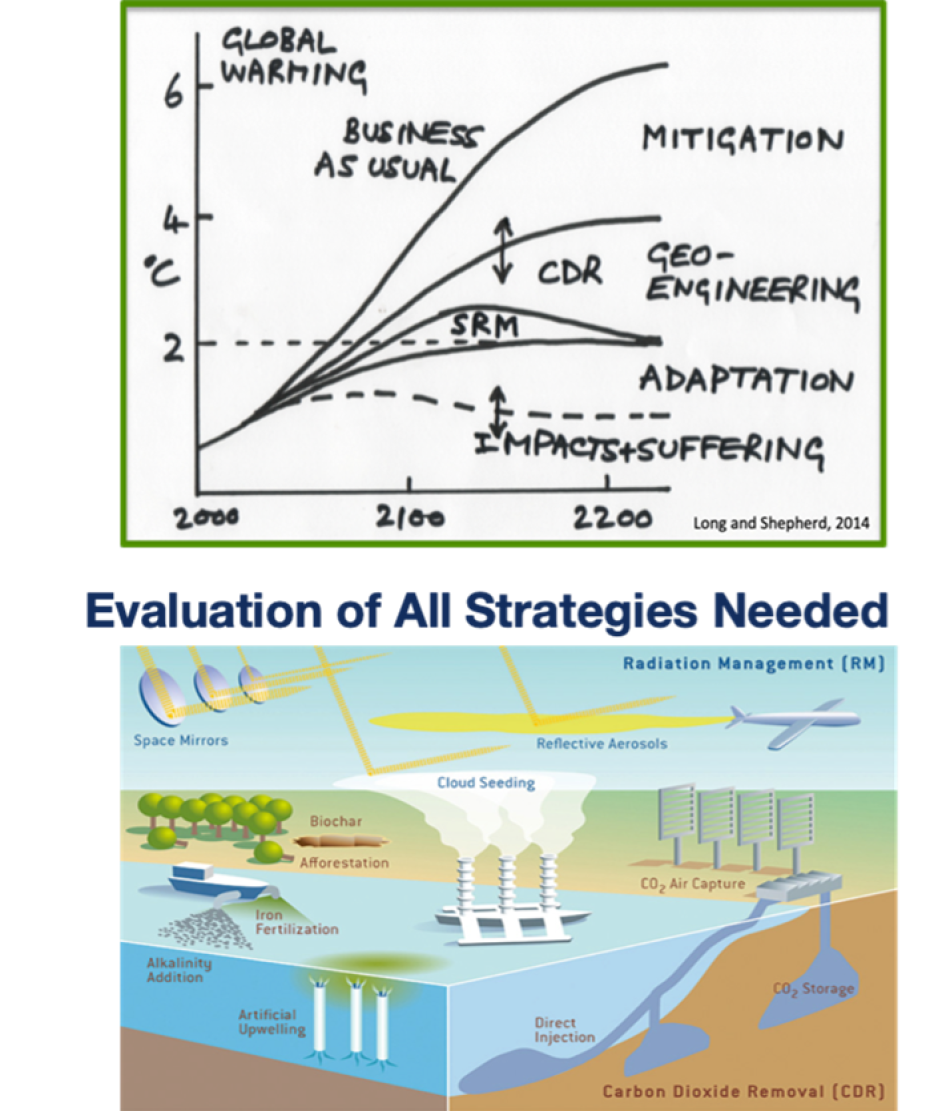Mission & Motivation
Motivated by the urgency to holistically evaluate climate intervention strategies

Mission:
Integrate currently disparate research communities to develop an interdisciplinary research program responsive to the complexity of holistically assessing climate intervention strategies to achieve a sustainable climate.
Main goals of the project:
- Develop an international, community-based interdisciplinary research program
- Establish and support integrated working groups
- Develop science proposals, priorities and identify funding needs
- Enhance communication and synergize existing efforts and cultivate new ones
Facilitate:
- Interdisciplinary evidence-based research efforts to assess a portfolio of possible strategies combining mitigation, adaptation, and various intervention strategies responsive to the priorities and needs of knowledge users
- Adoption of best practices for societally and policy relevant research projects
- Facility intra- and inter-group communication and comprehensive outreach and education efforts with stakeholders and the public
Urgency:
- It is increasingly evident that mitigation alone will not achieve 1.5 or 2°C climate targets of IPCC/UNFCCC and Paris agreements.
- Mitigation and adaptation have to be big players, yet they are falling well short.
Solutions:
- Achieving a sustainable climate may require Climate Intervention Strategies.
- This complex problem requires an integrated and unified response from a multitude of currently disparate research communities.
Achieving a sustainable climate may not be possible without intervention strategies coupled with aggressive mitigation and adaptation measures. This complex problem of achieving a sustainable climate requires a unified response from the research community; the convergence and integration of a multitude of natural and social science disciplines working together to identify research questions, priorities, stakeholder values and needs.
The main mission of the Community Climate Intervention Strategies project is to integrate various research communities to develop a unifying research framework in order to holistically assess the large collection of possible strategies, including mitigation, adaptation, and interventions including carbon dioxide removal and solar radiation management. This project aims towards unbiased research that is not driven by any specific interest groups. This work is meant to target the global good, including social and ecological considerations and is to develop shared principles of best practices that apply throughout this project.